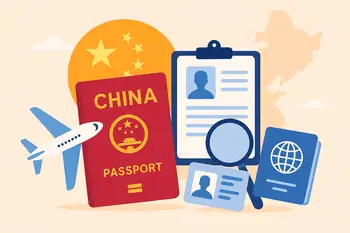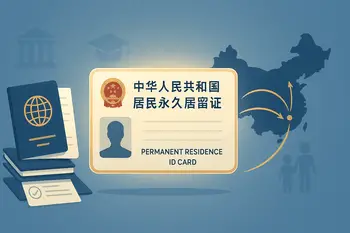
Navigating healthcare as an expat in China can be challenging, but understanding the system, costs, and available options can help you make informed decisions.
This guide provides a detailed overview of healthcare services, costs, insurance options, and practical tips for managing medical expenses while living in China.
Overview of the Healthcare System in China
China’s healthcare system is divided into two main sectors: public and private.
Each offers distinct advantages, cost structures, and levels of service.
Public Healthcare
Public healthcare in China is primarily state-run and includes hospitals and community clinics.
It is generally more affordable than private healthcare, with subsidized basic services.
However, additional fees may apply for advanced treatments, medications, or specialized care.
- Facilities: State-run hospitals and community clinics.
- Costs: Lower than private healthcare, with basic services subsidized by the government.
- Insurance: Many expats benefit from Chinese Social Health Insurance (CSHI), often provided by employers.
Challenges: Public hospitals can have long wait times, crowded facilities, and limited English-speaking staff, which may pose difficulties for expats unfamiliar with the system.
Private Healthcare
Private healthcare facilities in China cater to those seeking higher-quality services, shorter wait times, and English-speaking staff.
These facilities are often preferred by expats but come with significantly higher costs.
- Facilities: Private hospitals and clinics, often catering to foreigners.
- Costs: Comparable to Western countries, with private insurance often necessary to cover expenses.
- Quality: Offers personalized care, shorter wait times, and English-speaking medical professionals.
Note: Private healthcare is concentrated in major cities like Beijing, Shanghai, and Guangzhou. Expats in smaller cities may have limited access to private facilities.
Detailed Cost Breakdown
Understanding the costs of various healthcare services is essential for budgeting and planning.
Below is a comparison of costs between public and private healthcare facilities:
| Service | Public Hospitals (¥/USD) | Private Clinics (¥/USD) |
|---|---|---|
| General Practitioner (GP) Visits | ¥20–¥100 ($3–$15) | ¥300–¥600 ($45–$90) |
| Specialist Consultations | ¥50–¥200 ($7–$30) | ¥500–¥1,500 ($75–$225) |
| Diagnostic Tests | Basic tests: ¥100–¥300 ($15–$45). Advanced imaging (MRI/CT): up to ¥1,500 ($225). | MRI/CT scans: ¥2,000–¥5,000 ($300–$750). |
| Inpatient Services | Daily rates: ¥100–¥500 ($15–$75). Surgeries vary widely. | Daily rates: ¥1,000–¥5,000 ($150–$750). Surgeries can cost tens of thousands of yuan. |
| Emergency Services | ¥50–¥200 ($7–$30), excluding treatments. | Start at ¥1,000 ($150) and increase based on care level. |
| Medications | Subsidized: ¥10–¥200 ($1.50–$30). | Higher costs, especially for imported drugs. |
Source: China Briefing provides additional insights into healthcare costs and services.
Health Insurance for Expats
Health insurance is essential for managing healthcare costs in China.
Expats can choose between Chinese Social Health Insurance (CSHI) and private health insurance.
Chinese Social Health Insurance (CSHI)
- Eligibility: Typically provided by employers.
- Coverage: Covers a portion of public healthcare costs. Out-of-pocket payments may be required for advanced treatments or medications.
- Limitations: Limited coverage for private healthcare and specialized services.
Private Health Insurance
- Providers: International insurers like Bupa, Cigna, and Aetna offer plans tailored for expats.
- Coverage: Comprehensive plans cover public and private healthcare services, including specialist consultations, inpatient and outpatient treatments, and emergency care.
- Cost: Premiums range from $1,000 to $5,000 per year, depending on age, coverage, and pre-existing conditions.
Tip: Compare plans from multiple providers to find one that suits your needs. Websites like Pacific Prime can help you explore options.
Regional Variations in Healthcare
Healthcare costs and quality vary significantly across China.
Major cities like Beijing, Shanghai, and Shenzhen have world-class private hospitals and clinics, while smaller cities and rural areas may have limited options.
Expats in less urbanized areas should plan for potential travel to larger cities for specialized care.
Traditional Chinese Medicine (TCM)
Traditional Chinese Medicine (TCM) is an integral part of healthcare in China.
Services like acupuncture, herbal medicine, and cupping are widely available and often more affordable than Western treatments.
However, expats should consult with a trusted practitioner and ensure TCM is compatible with their existing medical conditions.
Learn More: World Health Organization on TCM.
Tips for Navigating the Healthcare System
To effectively navigate healthcare in China, consider the following tips:
- Choose the Right Facility: Decide between public and private hospitals based on your budget, language needs, and the level of care required.
- Understand Your Insurance: Familiarize yourself with your health insurance plan, including covered services, deductibles, and co-payments.
- Plan for Emergencies: Identify nearby emergency facilities and understand the procedures for urgent care. Keep emergency numbers handy, such as 120 for ambulances.
- Build a Relationship with a Doctor: Establish a rapport with a trusted GP or specialist for better continuity of care.
- Keep Medical Records: Maintain a record of your medical history, prescriptions, and treatment plans for consistent care.
- Explore Telemedicine: Many private hospitals and clinics offer telemedicine services, which can be a convenient option for non-urgent consultations.
Conclusion
Understanding the cost of healthcare services in China is crucial for expats to manage their health and finances effectively.
Whether you choose public or private healthcare, being informed and prepared will help you navigate the system with confidence.
For more information, visit resources like Expat.com or China Briefing to stay updated on healthcare policies and costs.


